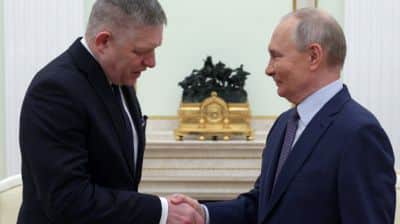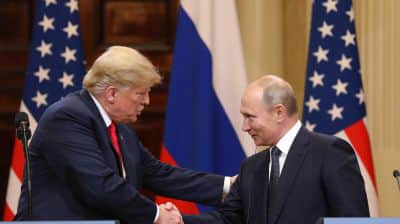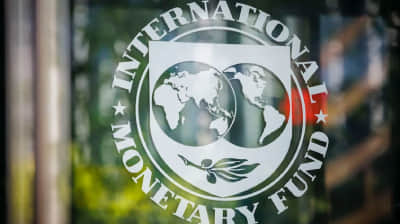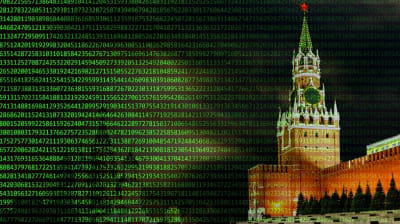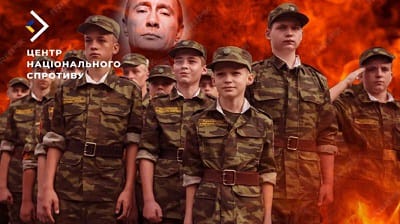ISW lists fake news Russia uses to slow down weapon supplies to Ukraine
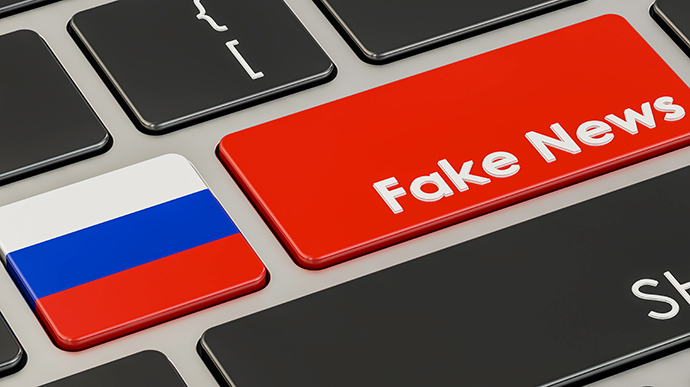
Experts of the Institute of the Study of War (ISW) listed informational operations that are being strengthened by Russia in order to restrain and slow down the West in supplying Ukraine with armament.
Source: ISW
Details: Russian authorities appear to be escalating their promotion of false flag information operations to distract from their lack of tangible battlefield gains and slow down the provision of Western tanks and other aid in advance of expected Ukrainian counter-offensives.
The Russian Ministry of Defense accused the "US and its accomplices" on 28 February of planning to carry out a provocation in Ukraine using toxic chemicals.
"The apparent uptick in fallacious biochemical and nuclear false flag warnings accompanies a concerted Russian false flag information operation accusing Ukraine of preparing for an invasion of Russian-occupied Transnistria, Moldova," experts report.
Russian President Vladimir Putin also notably re-introduced nuclear rhetoric into the Russian information space during his address to the Russian Federal Assembly on 21 February when he announced Russia’s intent to suspend participation in START [Strategic Arms Reduction Treaty – ed.].
The ISW came to the following conclusion: "The Russian [Ministry of Defence] and top Russian officials will likely escalate their engagement with such information operations as the ongoing Russian offensive in Luhansk Oblast nears culmination and the opportunities for Ukrainian counter-offensives grow."
A top US defence official supported ISW’s continued assessment that Russia is extraordinarily unlikely to use nuclear weapons in Ukraine.
Russian President Vladimir Putin addressed the Federal Security Service (FSB) board on 28 February and emphasised the role of the FSB in supporting the war in Ukraine in a law enforcement and counterterrorism capacity.
"Putin’s address to the FSB similarly aligns the FSB and its traditional domestic law enforcement and counterterrorism role with Russian military efforts in Ukraine in order to frame Russian victory in the war as necessary for Russia’s domestic security," the ISW summed up.
The Kremlin is likely attempting to reintroduce a Russian information operation aimed at falsely portraying Russia as being open to negotiations while the collective West refuses to negotiate.
Kremlin spokesperson Dmitry Peskov stated on 28 February that Russian officials are open to negotiations to end the war in Ukraine but that Ukraine and the West must recognize new "territorial realities" associated with Russia’s illegal annexation of occupied territories in Ukraine.
The Kremlin appears to be using Belarusian President Alexander Lukashenko as a conduit to reengage with this information operation, likely in pursuit of negotiations on favourable terms to Russia and further delays in the West’s provision of critical weapons systems to Ukraine.
Lukashenko stated during his official trip to China that Russia is ready to take steps towards a peaceful settlement and that there is a unique opportunity to end the war in Ukraine before Russia puts its economy on a stronger war footing.
Lukashenko also blamed the West and the US for coercing Ukrainian officials into rejecting negotiations with Russia.
The Kremlin and Lukashenko are likely seizing on China’s release of a 12-point peace plan to reintroduce an existing Russian information operation that the Kremlin used in December 2022.
That information campaign centering on Russia’s openness to negotiations aimed to prompt Western officials to offer preemptive concessions and coerce Ukraine to negotiate on Russian terms and likely contributed to the delay in the provision of Western tanks and other equipment essential for the continuation of Ukrainian mechanised counter-offensives.
Key ISW takeaways as of 28 February:
- Russian authorities appear to be escalating their promotion of false flag information operations in an effort to distract from their lack of tangible battlefield gains and slow down the provision of Western tanks and other aid in advance of expected Ukrainian counter-offensives.
- US Undersecretary of Defense for Policy Colin Kahl stated that the US has no indication that Russian forces will use nuclear weapons in Ukraine.
- Russian authorities appear to be escalating their promotion of false flag information operations in an effort to distract from their lack of tangible battlefield gains and slow down the provision of Western tanks and other aid in advance of expected Ukrainian counter-offensives.
- US Undersecretary of Defense for Policy Colin Kahl stated that the US has no indication that Russian forces will use nuclear weapons in Ukraine.
- Lukashenko may facilitate Sino-Russian sanctions evasion schemes during his official trip to Beijing, China from 28 February to 2 March.
- Russian forces conducted limited ground attacks near Svatove and Kreminna and likely made limited advances north of Kreminna.
- Russian forces made tactical gains in northern Bakhmut and continued ground attacks around Bakhmut and in the Avdiivka-Donetsk City area.
- Ukrainian officials continue to report potential Russian preparations for renewed offensive operations in Zaporizhia and Kherson oblasts, though ISW has not observed indicators that Russian forces plan to renew offensive operations in these directions.
- Armenian authorities detained a Russian citizen in Yerevan for an act of protest against the war in Ukraine committed in Moscow in July 2022.
- Ukrainian President Volodymyr Zelensky enacted a Ukrainian National Security and Defence Council decision to sanction 109 Russian citizens involved in the forced deportation of Ukrainian children.
Journalists fight on their own frontline. Support Ukrainska Pravda or become our patron!
